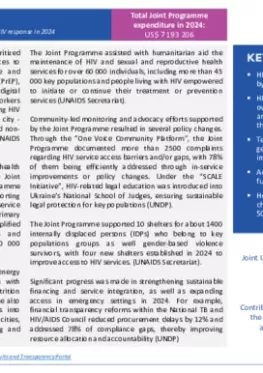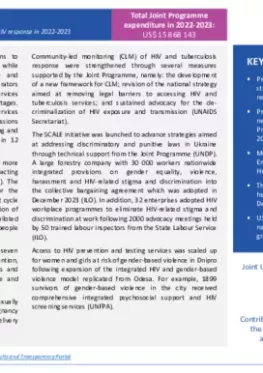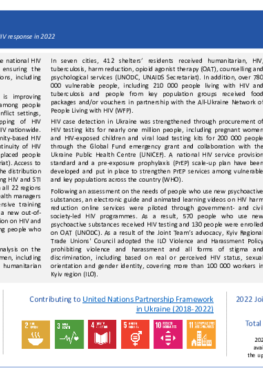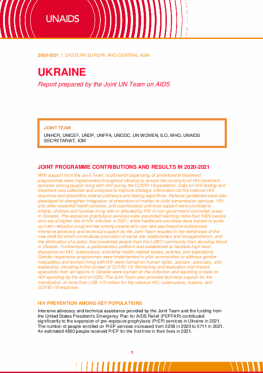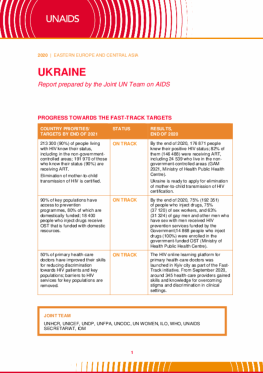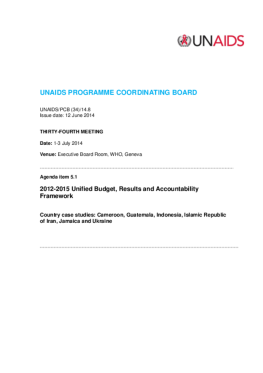|
Ukraine
In 2024, the Joint Programme in Ukraine prioritized continuity of HIV prevention and treatment services to mitigate the impact of the war on healthcare and humanitarian response. Pre-exposure prophylaxis (PrEP), workplace HIV testing and use of telemedicine and digital monitoring tools were expanded. Over 3000 workers engaged in awareness activities, with 1000 undergoing HIV testing, including self- testing options in Fast Track city - Kyiv metropolitan area. Over 200 employers adopted non-discrimination policies (UNFPA, ILO, WHO, UNAIDS Secretariat).
Efforts to integrate HIV services into broader health systems have yielded significant results, with the Joint Programme’s support for the national PrEP programme leading to 84% of PrEP sites now systematically reporting data of required quality, improving accountability, service delivery and decision-making. HIV testing in primary healthcare facilities increased by 73%, with simplified testing algorithms reducing turnaround times and improving diagnostic efficiency, reaching over 210 000 people (WHO).
The Joint Programme distributed 50 000 high-energy biscuits and diaper packs to families of children with perinatal HIV exposure, thereby improving their nutrition and health outcomes (UNICEF). The Joint Programme also supported integration of HIV prevention services into municipal Fast-Track Programmes in key cities, empowering local governments to expand testing and harm reduction initiatives (UNAIDS Secretariat).
The Joint Programme assisted with humanitarian aid the maintenance of HIV and sexual and reproductive health services for over 60 000 individuals, including more than 45 000 key populations and people living with HIV empowered to initiate or continue their treatment or prevention services (UNAIDS Secretariat).
Community-led monitoring and advocacy efforts supported by the Joint Programme resulted in several policy changes. Through the “One Voice Community Platform”, the Joint Programme documented more than 2500 complaints regarding HIV service access barriers and/or gaps, with 78% of them being efficiently addressed through in-service improvements or policy changes. Under the “SCALE Initiative”, HIV-related legal education was introduced into Ukraine’s National School of Judges, ensuring sustainable legal protection for key populations (UNDP).
The Joint Programme supported 10 shelters for about 1400 internally displaced persons (IDPs) who belong to key populations groups as well gender-based violence survivors, with four new shelters established in 2024 to improve access to HIV services. (UNAIDS Secretariat).
Significant progress was made in strengthening sustainable financing and service integration, as well as expanding access in emergency settings in 2024. For example, financial transparency reforms within the National TB and HIV/AIDS Council reduced procurement delays by 12% and addressed 78% of compliance gaps, thereby improving resource allocation and accountability (UNDP).


